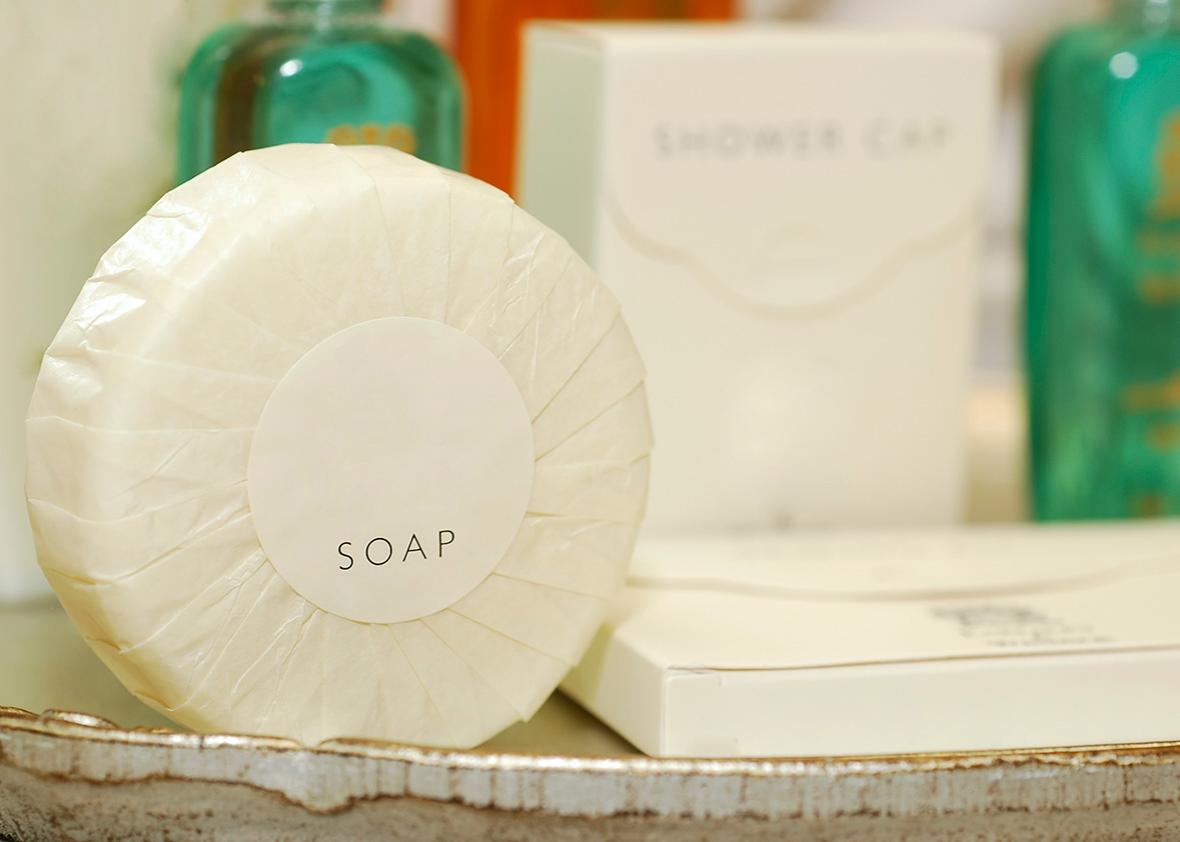Exploring the amenities is one of the great pleasures of staying in a hotel room. Premium television channels, extra fluffy pillows, or a luxurious bathrobe can make a stay that much more delightful. But as everyone knows, the most crucial feature of a hotel room is the selection of hygiene and beauty products on offer in the bathroom. This is especially true in the age of liquid terrorism, when people are forbidden from traveling with bottles containing more than 3.4 ounces of anything. According to Hoyt Harper, the global brand leader for the company that runs Sheraton Hotels, the percentage of guests who use the complementary items has shot up from 35 percent 10 years ago to 75 percent in 2014. But some tiny bottles of shampoo, body wash, and conditioner are better than others—and finding ones that will work for a broad swath of travelers can’t be easy, considering how personal people’s preferences are when it comes to scent and hygiene. So how do hotels decide which products to stock in their bathrooms?
The decision is based on a consideration of function and brand identity, and is often helped along by lobbying from manufacturers. Unsurprisingly, the hospitality experts who run hotels put a lot of thought into providing their guests with the exact right products—right as in works well enough that a person feels clean after using them but also right as in consistent with the image that the hotel wants to project.
Boutique hotels, such as the Drake in Toronto, the Ace, and the Standard—which often employ their own music directors, art curators, and graphic design consultants, and do things like offer multicolored toilet paper in their bathrooms—are especially focused on their toiletry game, seeing it as integral to the conjuring of their vibe and to the experience they want their guests to have. At the Drake, the three bottles you’ll find in your shower are from Malin and Goetz—often stylized (MALIN+GOETZ)—an “apothecary” based in Manhattan. That partnership was born when one of the company’s founders walked past the Drake during a visit to Toronto and personally pitched his line to the hotel manager after deciding it was the sort of place where his line of cleansers, balms, and moisturizers should be seen.
Sometimes partnerships start from the opposite direction. The owners of the Heywood Hotel in Austin, Texas—a seven-room boutique that was recently featured on a list of hotels worth visiting for their toiletries alone—settled on the Hydrate Me line of wash and rinse hair products from Kevin Murphy, in part because the company was capable of providing the ecoconscious Heywood with refillable containers.* For skin products, the owners initially reached out to a beauty company whose wares they had encountered in a different Austin hotel but were told they couldn’t work together due to exclusivity concerns. Instead, Heywood ended up partnering with a small company called Archipelago Botanicals because its products carried a subtle smell that promised to appeal to both men and women—a crucial feature for hotel toiletries in general—and because its black text on white bottles looked nice against the Heywood’s all-white bathroom color palette.*
Partnerships between hotels and manufacturers are often forged more systematically. It’s standard for brands to actively approach hoteliers about their offerings, often with tailor-made brochures in hand, and there are entire catalogs for people in the hospitality industry from which a hotel manager can order amenities. Some beauty/hygiene companies are specifically focused on the hotel market, while others see it as an opportunity to get their products in front of guests who might then buy the products independently.
Unsurprisingly, the most research-intensive approach to choosing amenities can be seen at large hotel chains, for which toiletry selection represents a multimillion dollar investment. According to Forbes, the design and development team at Marriott International tested “52 brands of shampoo, conditioner, body gel, lotion and soap before choosing the perfect one for its Marriott Hotels around the world.” That search led Scott Mitchell, the team leader, to select a skincare line from Bangkok for Marriott’s North and South American hotels, and an Italian company for the European and African market.
One of the main ways that hoteliers know whether they’ve done a good job in making their choices is whether guests take the samples home with them. As Mitchell told Forbes, “If you take it, then you must have liked it.”
Explainer thanks Jessica Rodrigues, head of marketing and PR for the Drake Hotel in Toronto; Kathy Seltzer, co-owner of the Heywood Hotel in Austin, Texas; and Morena Oliveira of Onefinestay.
Take the grand tour of the rest of our Travel Explainers here.
*Correction, Aug. 27, 2015: This post originally misstated that Kevin Murphy and Archipelago Botanicals were based in Austin. (Return.)
